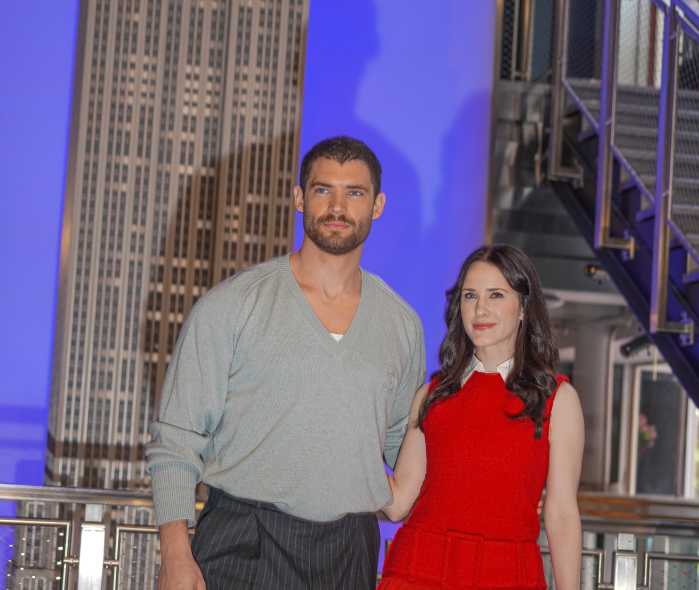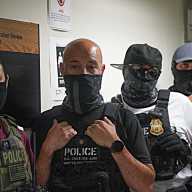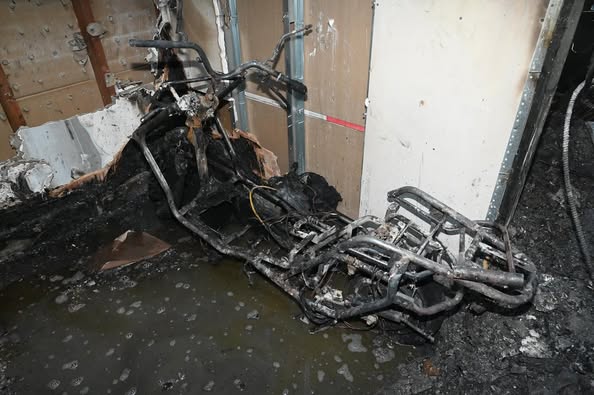Jesse Plemons is a character actor who’s made an impression no matter the role. A Texas native, Plemons, 31, has excelled at playing a wide range of characters, from nice guy Landry Clarke on NBC’s “Friday Night Lights” to David in the film “Other People,” a man whose life is in disarray as he prepares to take care of his dying mother. Plemons so impressively transforms into characters it’s hard to believe he’s the same person who played Todd, a meth-cooking child murderer in “Breaking Bad” as well as a menacing mob goon in “Black Mass.”
Deftly juggling genres, he became a highlight in the 2018 comedy “Game Night” as Gary, an awkward cop, whose sole purpose is to get back into the good graces of his neighbors while spiraling from his divorce. Plemons jokes he’s slowly trying to “corner the market on every type of creep out there.”
In Martin Scorsese’s “The Irishman” — the decadeslong story of Frank Sheeran’s (Robert De Niro) dealings with Russell Bufalino (Joe Pesci), his family, and his friendship with Jimmy Hoffa (Al Pacino) — Plemons plays Hoffa’s “adoptive son” Chuckie O’Brien, a peripheral observer whounknowingly becomes an accomplice to Hoffa’s disappearance.
Plemons spoke to amNewYork about becoming Chuckie and digging into director Martin Scorsese’s world.
This film examines the complex morality of men in the mob . As an actor, how was it to see that mob world reframed in this way?
The feeling that you get from the script, it felt almost educational in a way — the insights to the way these people speak and communicate and the code words — but then seeing the film, it was much more human than most films like this are.
How was it shooting in New York? Any first impressions?
My first impressions were, the people. I loved the people. I’m from a tiny town in Texas, so the first few times I came here I was pretty overwhelmed with the sensory overload. The conversations you have with strangers are much different from the ones you have in Los Angeles, I can say that.
How was Scorsese as a director?
He’s as generous and welcoming as [anyone] I’ve worked with. I did definitely have some nerves in that first meeting, but pretty soon after I met him he put me right at ease.
There’s so much speculation about the role that Chuckie had in Jimmy Hoffa’s disappearance. How was your prep for this role?
[It was] whatever I could find online. The production tracked down an audio recording of him maybe four days before I started, which was wonderful — and pretty terrifying with how last minute that was. It definitely helped just to have some idea of who he was and how he sounded rather than just reading about him.
Martin Scorsese also is the king of bringing pockets of levity to what would otherwise be a grim film. The fish scene, where you’re describing the saga of picking up a fish, really encapsulates that. Did you get a chance to play around with the dialogue during that car ride?
We did! I think I read that it was his longest shoot yet so my second scene was a piece of that and then the last thing I shot however many months later was also that scene. Reading it, it’s kind of classic Scorsese dialogue that you kind of have to work hard to mess up. It’s really just so perfect at that moment. He did end up picking a longer take where we did improvise a little bit.
Throughout the film we see Al Pacino and Robert De Niro’s terrific chemistry. Al Pacino is explosive while Robert De Niro is meditative and you’re right in the middle of that. How was it acting in that space with them?
It was just incredible to witness. You’re right, they have such different, unique styles but my favorite scene was the second meeting that Hoffa has with Tony Pro when he shows up in the shorts. Frank is just trying to reel him in, but he’s also so entertained by his temper, you know? They’re just an odd and incredible pairing.
There’s been talk about the CGI that was used for de-aging and how realistic it looks. As an actor, how do you feel about the advancement of that technology?
Well, most technological advances have positive and negative effects. This is about as positive as you can get. To see these actors play these characters at every stage of their life is something that I don’t think anyone thought was possible until recently. So in that regard, it’s really exciting. I hope we don’t get to a point where we’re obsolete [laughs] and they can just sort of create the movies without actors.





































